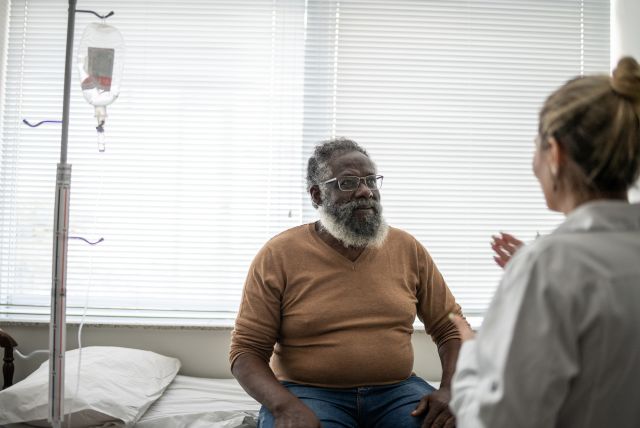Esophageal cancer refers to cancer that begins in the esophagus, the muscular tube-shaped organ that connects the throat to the stomach and enables a person to swallow foods and beverages.
Like many other types of cancer, treatment for esophageal cancer is individualized. This means that each person’s treatment plan is a bit different. The choice of treatment will depend on several different factors—the location and size of the tumors, if the cancer is confined to the esophagus or if it has spread beyond the esophagus, any history of prior cancer treatments, and a person’s age and overall health.
Treatment options for esophageal cancer
A treatment plan for esophageal cancer may include endoscopic procedures, surgery, and radiation therapy that aim to remove or destroy specific tumors. It may include systemic therapies like chemotherapy, immunotherapy, or targeted therapies—treatments that act on cancer throughout the body. It will likely include nutritional therapy, since the cancer can affect a person’s ability to eat and maintain good nutrition.
It’s also common for a treatment plan to include more than one type of therapy. For example, surgery may be combined with radiation therapy and/or chemotherapy. Some immunotherapy drugs—which help the body’s immune system recognize and fight cancer—may also be used with chemotherapy. Treatment plans may also change and evolve with time.
If you are living with esophageal cancer, you may find that the cancer is being treated with a combination of therapies, which may be used together, or used at different times. Here, we look at some questions and topics that can help you understand the different parts of your treatment plan and help you take an active role in your treatment decisions.
Questions about the treatment
Treating cancer is about making informed decisions. This means understanding the potential risks of a particular treatment as well as the potential benefits. It helps to have a good understanding of how a therapy or procedure works and what you can expect your life to be like during treatment, and after. Some questions you can ask your healthcare team:
- Why do you recommend this approach to treatment?
- How do the different parts of the treatment plan work together?
- What is the goal of this treatment plan?
- How does this therapy work? (Or therapies, if being treated with a combination of therapies).
- What is the treatment schedule like? Where, when, and how often will treatments be administered?
Questions about quality of life
Quality of life is an important topic to discuss with your healthcare team. Quality of life refers to your overall wellbeing—your moods, your energy level, your relationships, your ability to work and do the things you enjoy doing. Cancer and cancer treatment can impact all of these areas of a person’s life and more.
It’s important to understand the mental and physical demands of cancer treatment ahead of time, and to discuss any concerns with your healthcare providers. These questions may be helpful:
- What side effects should I expect?
- How long do side effects typically last?
- What can be done to help me cope with side effects?
- What is the recovery process like after treatment?
- Is there a risk of serious complications or side effects?
- Will this treatment affect my ability to eat?
- What will this treatment cost?
- Will I be able to work while on this therapy?
While many of your conversations about treatment will be between you and your oncologists, you should also consider working with an oncology social worker, who can help you navigate the practical, psychological, and emotional aspects of cancer treatment.



